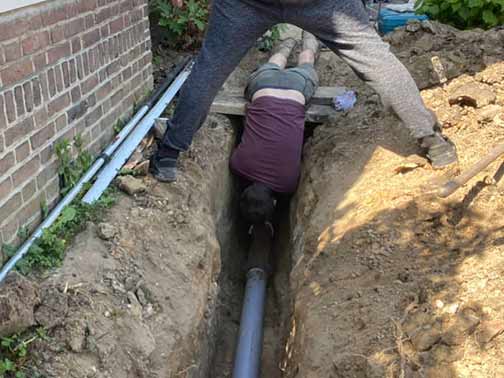
For homeowners looking for ways to cut the cost of maintaining the different systems and structures in their homes, basic DIY (Do-it-yourself) skills can make a huge difference. Diagnosing and fixing common problems in your home will save you more money.
In addition to cutting your home maintenance cost, you learn valuable lessons that let you predict or detect impending issues and fix them before they worsen. That helps to lower your costs even further, and you get to avoid the inconveniences caused by constant emergencies in your home.
What’s more? Easy access to detailed online resources on how to diagnose and solve most home maintenance problems means that DIY is somewhat easy. Also, tools that used to be out of the reach of everyday homeowners are now readily available and even easy to use.
There is one thing to be aware of, notes Harper Management team. It is essential to recognize that your DIY skills do not make you a professional. Some problems in your home should never be DIY-ed. Knowing when to put down your tools and call an expert can help you avoid trouble.
What kind of issues in your home should you never DIY?
There are lots of problems in the home that should only be handled by licensed professionals. One of the most important ones is sewer line repair. You may use homemade remedies to unclog a drain. But if your sewer line is damaged, never try to fix it yourself.
Why is this important?
6 reasons why you should avoid DIY sewer line repair
Experience and the right equipment
To fix a broken sewer line, complex operations which require specialized knowledge are involved. Since sewer lines are underground, diagnosing the cause and extent of the problem is not something homeowners have the expertise to do. During sewer line repair, it is vital to map nearby utility lines and understand soil conditions. Also, the machines used to repair a damaged sewer line are costly and hard to operate. An expert will consider the different aspects of this problem to ensure a lasting result.
Building code requirements
Because of the risk a damaged sewer line poses to neighboring properties and city infrastructure, sewer line construction and repair are highly regulated. Homeowners may find it hard to obtain permits for sewer line repairs. They will also struggle to comply with the stringent rules imposed on sewer projects by the authorities. To avoid fines and property damage from failing to comply with local requirements and ordinances, it is best to let a professional handle this job.
Risk of additional damage
The plumbing is one of the most interconnected systems in your home. Problems in one area of the system can ripple through the entire network to create unexpected issues in other areas. For instance, it is not uncommon for a poorly done sewer line job to cause a home’s fresh water supply to become contaminated. Also, a small leak can lead to sewer line backup if the repair is not done properly. Homeowners wanting to save money by DIY-ing their sewer line repair often worsen the problem.
Risk of bodily harm
Sewer line repair is fraught with safety hazards and health risks. Professional handling of the sewer line helps to contain the contaminated content inside the pipes. Along with the sanitary risk posed by coming into direct contact with sewage, there are other dangers. During the excavation of sewer lines, the chances of hitting a natural gas line are high, along with the attendant risk of fire, explosion and poisoning through gas inhalation. Collapsing earth from the walls of a dig site is another safety risk.
Higher repair costs
The main reason homeowners choose the DIY route is to save money. But when dealing with a sewer line repair, this approach can backfire. The avoidable problems that result from failing to fix the sewer line properly will eventually cost the homeowner more money than they were trying to save. Even if they are somehow able to correctly fix their sewer line, the cost of purchasing or renting equipment for the project would still be higher than what they would have paid to a professional plumber.
No guarantee or warranty
One of the benefits of hiring a professional plumber to fix your damaged sewer line is that you get to transfer some of your responsibility to them. If the repaired sewer line fails or develops a similar issue shortly after the repair, you can have the plumber return and fix the problem at no cost. Manufacturers also place warranties and guarantees on their products, and a plumber can pass these benefits to you. However, these benefits are only available when the sewer line repair is done by a licensed professional.
Hiring a professional plumber for sewer line repair helps protect your home’s value because buyers are usually wary of buying homes where critical repairs have been carried out by unlicensed individuals.

